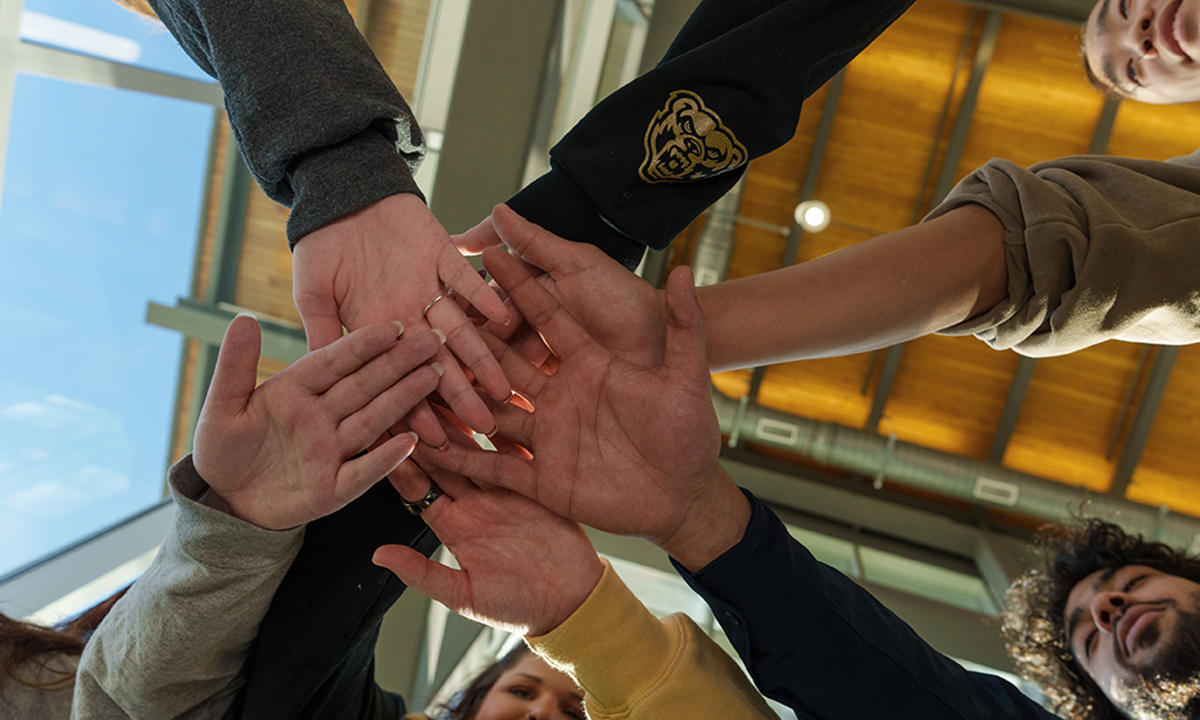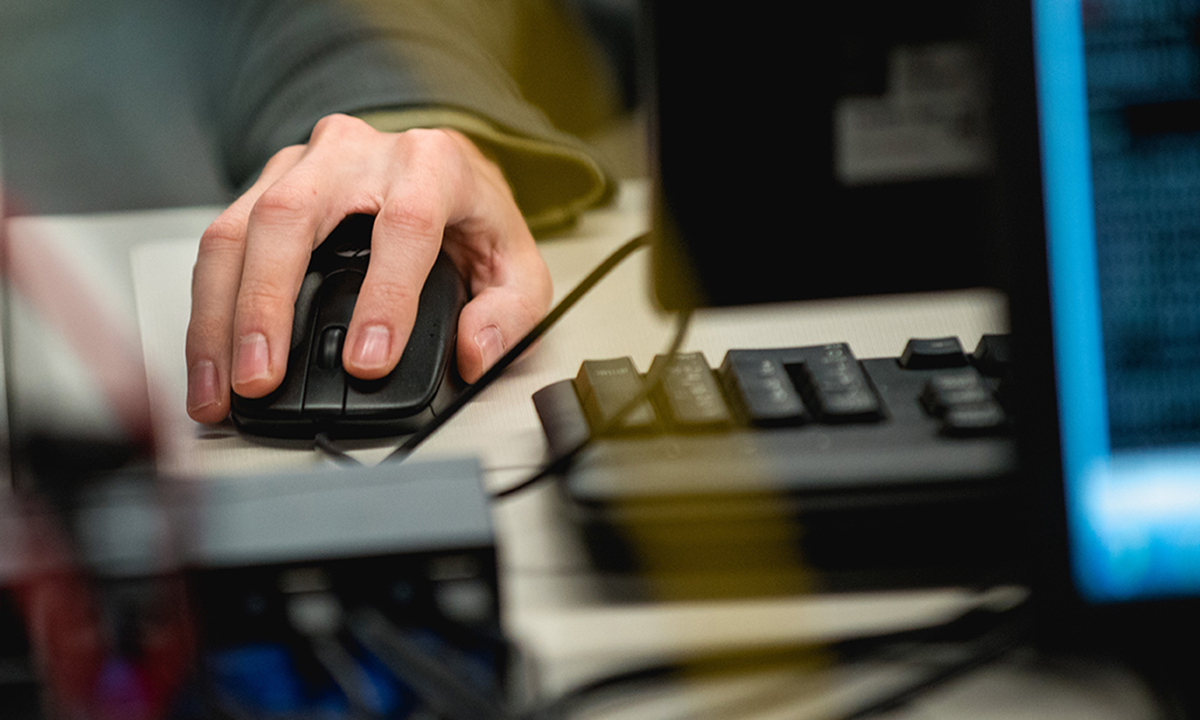Resilient Leadership
Allison Broski and David Ingermann, leaders of GrizzHacks and Grizzlies Racing, steered their organizations through challenges of COVID-19
Challenges are an inevitable part of life. Oftentimes, however, challenges bring into clear focus resilience and perseverance — the qualities exhibited by the leaders of two SECS student organizations, GrizzHacks and Grizzlies Racing — in the face of COVID-19.
The GrizzHacks hackathon, a popular event that enables participants to work cohesively using the fundamentals of code to design new applications and hardware programs, is typically held in September in the Engineering Center on OU’s campus. This year, the pandemic put the organization in front of a grinding choice — either to cancel the event or to take it completely online.
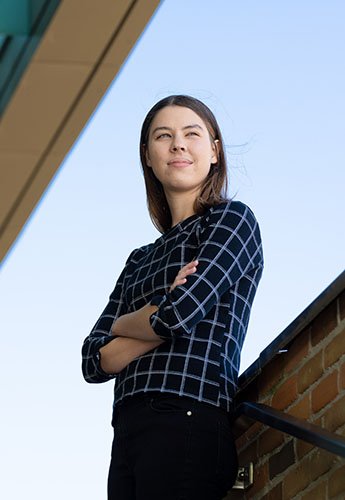 |
|
|
“My first thought was ‘Is this something we even want to do?’” recalls Allison Broski, a senior computer science major and GrizzHacks 5 lead director from Okemos. “There was talk of cancelling the event or pushing it to the Winter semester. Still, this was the hackathon’s fifth year — a major milestone — and one of the last events many of our board members would plan, so the collective decision was made to move forward virtually.”
From the start, this proved to be a demanding endeavor. There were many concerns about how to make this work; at the same time, many GrizzHacks members experienced the effects of the pandemic on their income, relationships and job security.
“Much of my time was spent considering what activities would ensure GrizzHacks 5 could happen, while also balancing the responsibilities of my team’s personal lives with their club activities,” Broski says.
The e-Board, which also included SECS students Andrew Dimmer, Shriyash Jalukar and Nick Sinistaj, had a plethora of challenges. From fundraising, building out the run-of-show, creating internal technology tools and marketing materials, doing promotional events, finding volunteers, and setting up registration to finally running the show, the team persisted, persevered and delivered a successful event.
When the hackathon took place September 18th-20th, 2020, 350 student participants joined in from 12 different time zones, resulting in 74 project submissions, which nearly doubled the previous record. The notable sponsors included Oakland University Credit Union, Dynatrace, Quicken Loans, Ally, Little Caesars, Comerica, FCA and Amazon. Through these partnerships, GrizzHacks raised over $15,000 during the pandemic.
Broski’s evolving resilient leadership was evident to all involved, including herself. “Through this experience I’ve become a better leader,” she admits. “I’ve had some amazing opportunities to speak with high-ranking leaders in a number of companies, and each one of them has impacted how I now think about leadership. Leaders learn to rely on their teams and trust them to get things done. They provide support, resources and time in order to help their members succeed. When my team succeeds, then I know I’ve done my job as a leader.”
True to her word, Broski credits her team with the success of GrizzHacks 5. “It is impossible for one individual to possess all of the skills and time necessary to put together any kind of project. You may be able to start by yourself, but at some point, assistance will be required,” Broski says.
David Ingermann, a general management junior from Rochester Hills and Grizzlies Racing team’s head of business and marketing, also values team effort, especially when it comes to facing challenges. Grizzlies Racing, OU’s Formula SAE collegiate chapter, which builds race cars to compete against other collegiate chapters from around the world, took the initiative to repurpose their skills to create 3D-printed face shields for frontline health professionals.
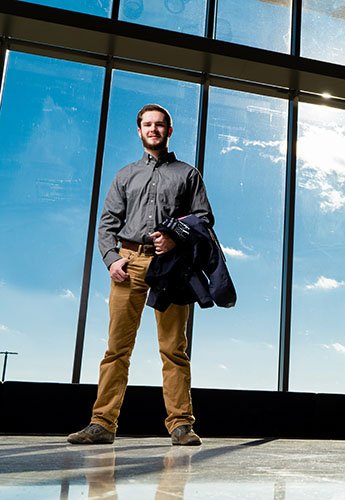 |
|
|
“As soon as I learned that the campus was going to close, my first priority was to make sure that all members of the team collected their projects, which included our 3D printer. When I put out a message to see if they had any suggestions about how we could help with the COVID relief effort, one of my teammates brought up the idea of 3D-printed face shields for medical workers, and we decided to run with it.”
Refining the printing process for speed and quality using a Mercy Face Shield design took some time, but the team eventually reduced their print time by almost 80 percent, utilizing the knowledge and skills students had learned while working with this technology.
Initially, the project was entirely financed by the members of the team, which included Ingermann and two SECS students, Trevor Sutton and Emily Anthony. Filament had been obtained prior to the lockdown, and the clear plastic was purchased with Ingermann’s personal funds. To continue their initiative, the team needed OU’s legal approval and funding.
“One thing I learned from this effort is that even with few resources, the right people and a little bit of ingenuity can make a huge impact. Dr. Brian Sangeorzan, the professor and chair of the mechanical engineering department, for example, provided us with a letter of support, while Anthonie Burke, SECS director of philanthropy, referred us to the Society of Petroleum Engineers (SPE) Foundation that graciously funded our endeavor,” Ingermann says.
To date, the Grizzlies Racing organization has produced approximately 550 face shields, all of which were donated to Crittenton and Beaumont hospitals.
Resourcefulness and ambition are two words that Ingermann uses to describe his leadership throughout this experience. “Given our team’s small size and agility, we were able to produce and deliver good quantities of face shields quicker than large organizations, such as Ford Motor Company. That’s an amazing achievement, which had no small impact on the frontline medical staff who had already nearly exhausted their supply of PPE,” he adds.
Despite the differences in their goals and purpose, Broski and Ingermann share one common trait — perseverance. No matter what challenges they have to face down the road, they are ready to lead their teams to success.
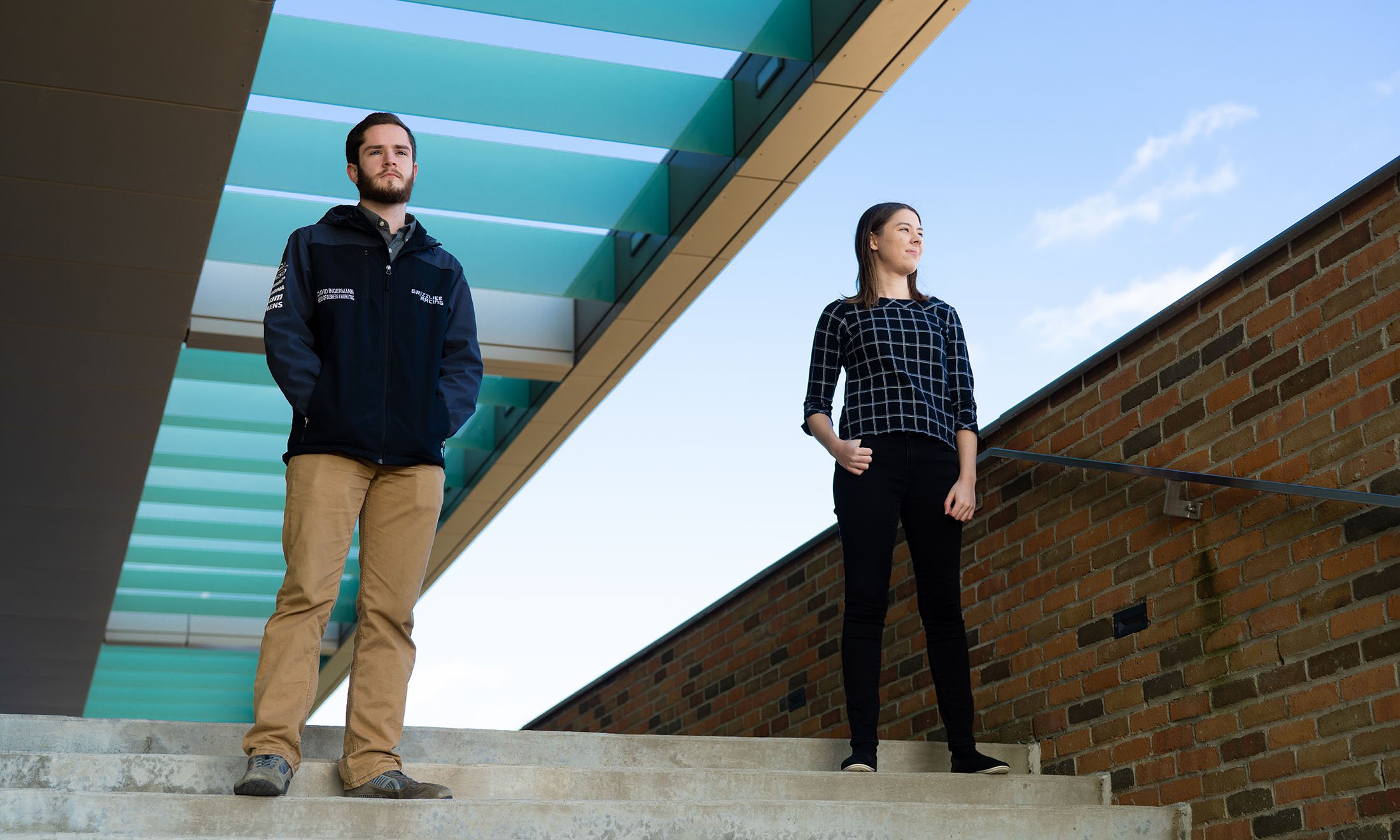
 December 10, 2020
December 10, 2020
 By Arina Bokas
By Arina Bokas